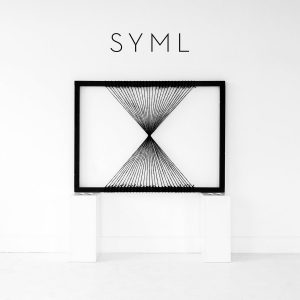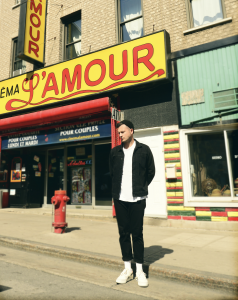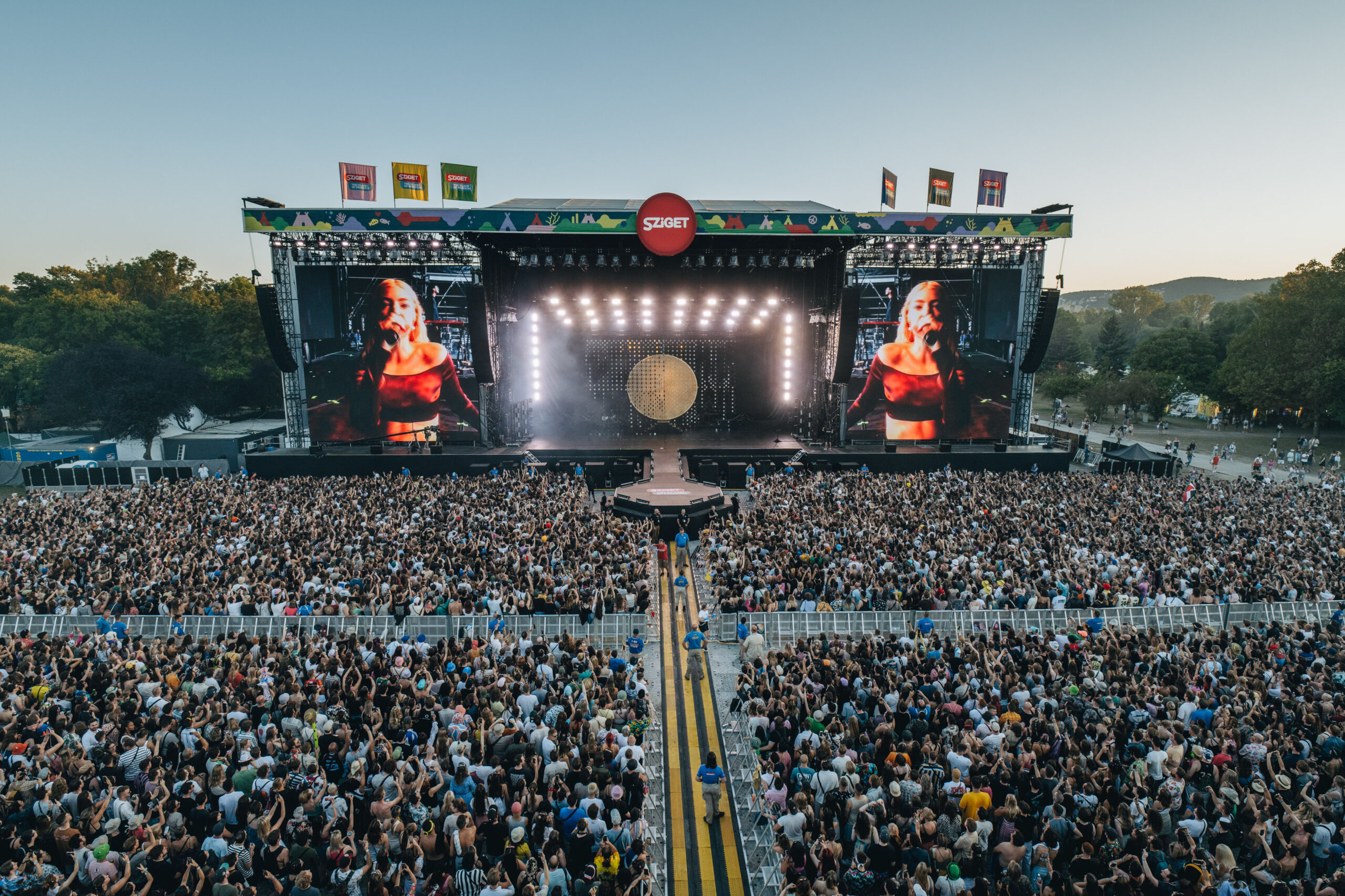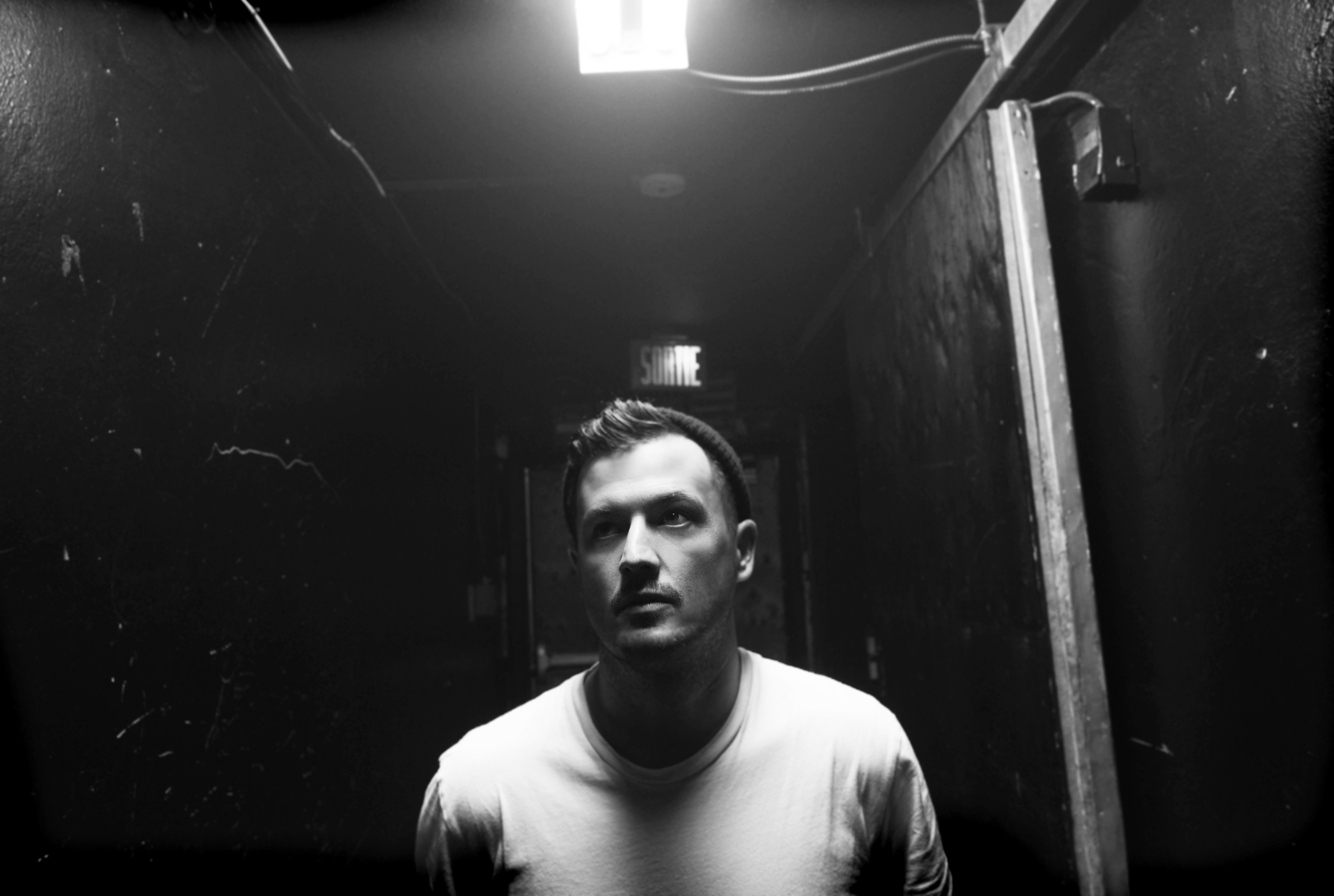Foto-© Shervin Lainez
Das musikalische Alter Ego des amerikanischen Songwriters Brian Fennell sorgt schon seit einiger Zeit für große Wellen im digitalen Musikozean – und das obwohl er als SYML bisher noch nicht mal sein Debütalbum vorgelegt hat. Dabei war seine musikalische Karriere erst gar nicht geplant, wollte er doch mit dem Abschluss eines Musikpädagogik-Studiums in der Tasche eigentlich Highschool-Musiklehrer werden. Mit seiner ersten Band Barcelona war er dann nicht wirklich erfolgreich, wobei ein erster Solo-Song aus dieser Zeit die Grundlage für seinen jetzigen Erfolg bis heute ist: Where’s My Love. Da nun das selbstbetitelte Debütalbum erscheint, haben wir die Chance ergriffen und den Songwriter mit einigen Fragen gelöchert! Unser Interview mit SYML!

Bandinfos:
– Name: SYML
– Band members: Brian Fennell
– Founding year: 2016
– Location: Seattle, WA
– Album: SYML
Questionnaire:
What is your first memory of a contact with music? When did you then start to play music?
I remember going to a concert for kids at the local zoo. I remember being entranced by it. When we went home I made my mom set up a “band” made up of household items and we performed a concert. I started playing piano at age 7.
You did already release music with a band as Barcelona, did tour and even had a major label deal then – looking back, why didn’t this project work out and what good / bad lessons did you take away from it?
It is hard to point to one reason why Barcelona ended. The main reason is that we started to have families and being away from home wasn’t enjoyable or financially sustainable. I learned many things during my time in the band, both industry-wise and creatively. It would be unfair to say I would do things differently because it brought me to where I am today. I am thankful, not regretful.
When did you then start to work on your solo career and why did you choose SYML as name for it?
I started writing songs for SYML around 2015. SYML means “simple” in Welsh, which is my heritage. I picked the name as a reminder that almost everything is better when simple, including music.
How did you then proceed from having quit the band project, to signing to Nettwerk Music for your solo project?
The timing of the end of Barcelona and the begging of SYML was coincidental. I hadn’t planned to start a solo project, but thanks to a few TV shows and Spotify playlists featuring my songs, momentum started to build. I met Nettwerk a short time after that, and it’s been an amazing partnership ever since.
Where’s My Love seems to be very important in your career as it was first released under Barcelona, then on your EP and now again on your debut record. What importance does the song have for you personally, that you decided to still have it on the record and why did you decide to add it?
Where’s My Love was never released under Barcelona. The song is very important to me because it was the first song I ever wrote for SYML. I never expected for people to react to it as they did. It continually surprises me and I thought it would be appropriate to include it on my first album.
Could you tell us a bit about the production process of the record? When and how was the record done, which was the best, which the worst moment of the time and which is the most told anecdote of it?
I mostly enjoy working alone in the songwriting and production process. However, I also enjoyed collaborating with a variety of my friends who are brilliant when it comes to production and arraignment. The record was done over the span of a year, mostly in Seattle, but also in LA, Oklahoma, and London. The whole process was enjoyable. There were times when I felt stuck or frustrated, but I wouldn’t say there was a best or worst time.

What plan did you have for your debut record before the production phase? Did you have any concrete ideas for sound/influences you wanted to add to it before and how did it turn out in the end?
I try my best to approach the recording and writing process with little expectation. Sometimes that means the songs won’t end up fitting on the album, but by not limiting the song while it’s being formed usually works out better. I tried to challenge myself in terms of sounds and structure. I used different techniques and instruments that I’d never used before. I think making yourself uncomfortable will usually result in something you are proud of.
The record sounds very vivid and has a lot of different sound and styles, which fits sometimes more to a playlist, instead of an album, which has one concrete sound – how did it come to that or did it just happen by writing song after song over a long time?
By not putting limits or expectations on the process, I let my inspiration go where it wanted to. My taste is quite varied and I think that is reflected in this record. Some of my favorite albums sound like this.
We read that Break Free has a special story behind it and also reflects the music business – could you tell us a bit what it is about, if there is a story behind it and how it came into life?
The song was written after I had a conversation with someone in the music industry. The conversation started fine, but then changed to a misogynistic subject. I didn’t say anything in the moment, but wish I had. It’s not just a problem in the music industry but in our culture as a whole. I think it is changing, but it would change much quicker if we (especially men) let go of what has become a “normal” of thinking and speaking about women. It’s a sickness. This is my creative take on this matter.
You are working alone on the songs – in comparison to Barcelona – which parts to you like more/less about being a solo artist? Could you imagine to be part of a band again at some point in your career?
Working alone can be much faster, which I like. Also, my songs are quite personal, so collaboration is less important in that area. I don’t have a plan to join a band again, but I won’t say it will never happen.
We read that before your music career you wanted to become a music teacher – is this still an option that you would like to proceed if at some point you don’t like to proceed your solo career anymore? What do you like about that job?
Some of my favorite mentors in my life were my music teachers. They inspired me to learn to be a teacher and to take music more seriously. As a result, I started a band around the same time and chose to focus on that side of music instead. I know they are as proud of me for choosing that instead of a career in teaching. I don’t see myself teaching in the near future, but, again, I won’t say it will never happen.
You are from Seattle, which is still very known for it’s vivid music scene and was also one very important base for indie rock – how would you describe the scene nowadays and do you feel that you are being part of it?
I am very proud to be from Seattle and of the music that has come from there. I don’t know exactly why, but I’ve never felt like a part of the “scene”. I think it’s been ambiguous since the days of grunge. It certainly is an inspirational place to live, but I don’t think that’s because of the scene, speaking for myself.
What are you doing when you’re not doing music?
I send time with my family. I enjoy being outdoors, mountain biking and hiking. I also love to cook and drink with friends.
What did you learn in 2018?
I am always learning about how to balance my personal life and career. This past year was full of those experiences.
Which song makes you dance every time?
Party in the USA by Miley Cyrus.
How would your Bedroomdisco look like?
I’m boring, so my Bedroomdisco would look like a bed made of clouds, complete darkness, and expensive headphones.
SYML Tour:
21.06. Southside Festival, Neuhaus ob Eck
22.06. Hurricane Festival, Scheeßel
23.06. Naumanns, Leipzig
08.08. Haldern Pop Festival, Haldern
12.09. Storm, München
16.09. Zoom, Frankfurt
17.09. Luxor, Köln
18.09. Bi Nuu, Berlin









